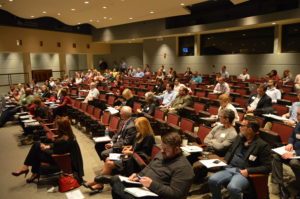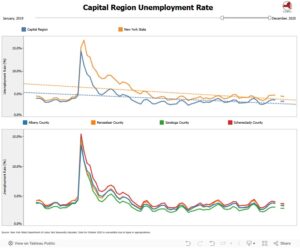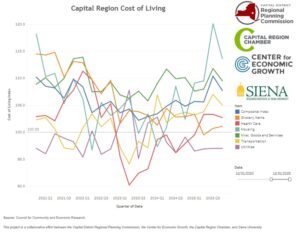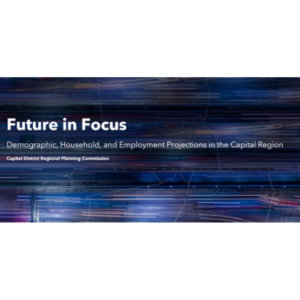CDRPC Grant Funding Workshop: Recap
More than 100 people joined us for our first Grant Funding Workshop at HVCC on April 12. We covered a broad range of topics about grant funding for local municipalities and non-profits. Our presenters included representatives from 14 different state and regional agencies. Our presenters provided detailed information on 20 different funding programs! If you need a refresher on what you heard, or were unable to make a session but want to know more, check out our workshop resources below.

Workshop Plenary and Concurrent Sessions
Grants and Affordable Financing: Successful Case Studies
Our workshop panelists discussed how to prepare to seek grant funding, explore available grant sources, and identifiy best practices for managing grants and getting projects completed. The group also presented case study examples to connect ideas and strategies to real projects.
Consolidated Funding Application, Grants Gateway, and Economic Development Programs
This presentation covered the Consolidated Funding Application (CFA) and Grants Gateway including the General CFA application timeline and process, CFA application, program rules, and common CFA questions. The presentation also covered Empire State Development (ESD) programs including the Excelsior Jobs Program, Strategic Planning and Feasibility Studies, and the Market New York Program.
Environmental Protection Fund Grant Program for Parks, Preservation and Heritage
This session provided an overview of the Environmental Protection Fund Grant Program for Parks, Preservation and Heritage, and the Recreational Trails Program, both administered by the New York State Office of Parks, Recreation and Historic Preservation. The EPF Grant Program offers matching grants for the acquisition, planning, development, and improvement of parks, historic properties listed on the National or State Registers of Historic Places and projects related to designated Heritage Areas.
Recreational Trails Program
The Recreational Trails Program funds projects to provide and maintain recreational trails for both motorized and non-motorized recreational trail use. Presenters highlighted requirements and best practices for preparing a successful application.
Local Government Efficiency Grants; Municipal Consolidation and Efficiency Competition; and Municipal Restructuring Fund
The Local Government Efficiency (LGe) Program provides technical assistance and competitive grants to local governments for the development of projects that will achieve savings and improve municipal efficiency through shared services, cooperative agreements, mergers, consolidations and dissolutions. Potential projects include planning, zoning, courts, government reorganization, charter revision, education, utilities, public safety, and transportation. This session connected potential applicants with program information and provide insights on developing a successful application.
Climate Smart Communities Grants; NYSERDA Clean Energy Communities Program
Communities across the state are making progress by implementing actions that will help them to reduce emissions, become more energy efficient, and enhance resiliency. The DEC Climate Smart Communities Program assists local governments in addressing local greenhouse gas emissions and preparing for the adverse effects of climate change. This session gave an overview of the upcoming Climate Smart Communities Grant Program for 2017 and gave the audience an opportunity to ask questions as well as give input for next year’s Program. Also covered was the NYSERDA-funded Clean Energy Communities Program, where local governments can receive free technical assistance and funding to implement clean energy and energy efficiency projects.
New York Main Street Program
The New York Main Street program provides financial resources and technical assistance to communities to strengthen the economic vitality of the State’s traditional Main Streets and neighborhoods. The New York Main Street grant program provides funds to units of local government, and not-for-profit organizations that are committed to revitalizing historic downtowns, mixed-use neighborhood commercial districts, and village centers. Main Street grants are revitalizing New York State’s downtowns through targeted commercial/residential improvements such as façade renovations, interior commercial and residential building upgrades, and streetscape enhancements. This session provided an overview of the program including eligibility requirements, best practices and case studies.
DEC/EFC Wastewater Infrastructure Engineering Planning Grant Program
The DEC, in cooperation with the New York State Environmental Facilities Corporation (EFC), runs the Engineering Planning Grant (EPG), which provides municipalities funding to prepare an engineering report to improve or repair their municipal wastewater system.
DEC Water Quality Improvement Program
This presentation covered the basics of the Water Quality Improvement Project (WQIP), which uses New York State Environmental Protection Funds for projects that reduce polluted runoff, improve water quality, repair/upgrade wastewater treatment facilities and restore habitat in New York’s waterbodies.
EFC Integrated Solutions Grants
The EFC Integrated Solutions Grants seek to incentivize a multi-faceted approach to water quality challenges caused by stormwater. Successful applicants construct projects that remove stormwater from combined, sanitary or storm sewers using USEPA defined green stormwater infrastructure practices.
Hudson River Estuary Program Grants
Hudson River Estuary Program Grants are aimed at conserving or improving clean water; fish, wildlife and their habitats; waterway access; the resiliency of communities; and river scenery.
Transportation Infrastructure Funding; PaveNY; BridgeNY
This session covered the variety of programs offered by the NYS DOT to fund work on bridges and roadways in addition to multi-modal and transit projects will be discussed.
Transportation Improvement Program
This session included information on the regional and collaborative Transportation Improvement Program (TIP) process that is managed by the Capital District Transportation Committee and used to distribute roughly $100 million annually.


